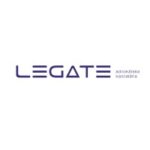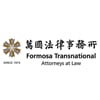-
What are the main methods of resolving disputes in your jurisdiction?
The primary method of resolving disputes in the commercial sector is through litigation in the Courts of Justice. Other dispute resolution systems include arbitration and mediation, while other forums consist of tribunals and boards.
-
What are the main procedural rules governing litigation in your jurisdiction?
The Code of Organisation and Civil Procedure (COCP), specifically Chapter 12 of the Laws of Malta, governs the procedural rules for civil and commercial proceedings. Additionally, subsidiary legislation enacted under the COCP also plays a role in regulating these proceedings. The COCP covers various aspects of civil and commercial litigation, including how court cases are conducted, rules for the production of witnesses and documentary evidence, and the different types of acts and applications that can be filed.
-
What is the structure and organisation of local courts dealing with claims in your jurisdiction? What is the final court of appeal?
The Maltese courts are split into inferior and superior courts. The superior courts are presided over by either a single judge or a chamber of three judges, while the inferior courts are presided over by a magistrate.
The inferior courts consist of the Court of Magistrates (Malta) and the Court of Magistrates (Gozo), which handle both criminal proceedings and commercial matters involving monetary claims ranging from €5,001 to €15,000. Claims of less than €5,000 are heard by the Small Claims Tribunal.
The superior courts consist of the Civil Court, which is divided into four sections:
the General Jurisdiction Section, the Family Section, the Commercial Court Section, and the Voluntary Jurisdiction Section.
The Civil Court handles civil and commercial matters, with the First Hall also dealing with constitutional rights violations and monetary claims exceeding €15,000. In Gozo, the jurisdictional competences exercised by the First Hall in Malta are handled by the Court of Magistrates (Gozo) in its superior jurisdiction. The Family Section handles family law matters, the Commercial Section deals with corporate law disputes, and the Voluntary Jurisdiction Section handles non-contentious matters.
Appeals of judgments delivered by the First Hall are heard by the Court of Appeal, composed of three judges. Appeals of constitutional cases go to the Constitutional Court, also composed of three judges. Appeals of judgments from other courts, boards, or tribunals are heard by the Court of Appeal in its inferior jurisdiction, presided over by one judge.
The Criminal Court handles trials by jury, with any appeals heard by the Criminal Court of Appeal.
Malta has several specialized courts, judicial bodies, and tribunals established to determine specific categories of claims, such as the Rent Regulation Board, the Rural Leases Control Board, and the Land Arbitration Board for real estate rights and claims. Specialized tribunals for consumer rights protection include the Consumer Claims Tribunal and the Financial Services Tribunal. Administrative decisions are contested before the Administrative Review Tribunal, while the Industrial Relations Tribunal deals with employment-related matters.
Although Malta does not have specialized courts in every field of law, court registrars tend to assign cases to specific judges according to the nature of the claim. Certain judges have acquired expertise in specialized areas of law, such as maritime law and IP law.
-
How long does it typically take from commencing proceedings to get to trial in your jurisdiction?
In special summary proceedings, the sworn application must be served on the defendant promptly. The defendant will then be ordered to appear in court no earlier than 15 days and no later than 30 days from the date of service.
In other proceedings, the timing for commencing proceedings and reaching trial is not fixed, as it depends on the case management by the Judge handling the case. Typically, cases at first instance are scheduled within 8 weeks.
-
Are hearings held in public and are documents filed at court available to the public in your jurisdiction? Are there any exceptions?
In Malta, most civil and commercial judicial proceedings are open to the public. This means that court records and documents in the court file can be accessed by anyone, and copies can be provided upon request. However, the court has the authority to hold closed-door hearings if both parties request it, or if there are moral or decency reasons for doing so, or if the parties can show good cause. Additionally, a party can ask the court to present redacted documents or seal certain evidence if it’s sensitive or confidential.
-
What, if any, are the relevant limitation periods in your jurisdiction?
The time limits for bringing legal actions depend on the type of claim. The time frames are specified in various statutes, including the Civil Code and the Commercial Code.
Actions for the payment of debts from a commercial transaction, rent for urban or rural property, interest on loans or the return of money given on loan without a public deed must be brought within five years from the date the obligation arose.
Actions for damages not arising from a criminal offence must be brought within two years from the date of the event causing the damage.
These time periods can be stopped and restarted if a judicial letter is served to the party being sued. The time limitation is also interrupted and starts running afresh if a legal claim is filed, even if the other party is not notified. Additionally, the time limit is restarted if the debtor acknowledges the debt or makes a payment.
Under the Carriage of Goods by Sea Act, carriers and ships are not liable for loss or damage covered by the act unless a lawsuit is filed within one year from the date of delivery or the date when the goods should have been delivered. This time period cannot be stopped or extended.
Similarly, some time limits under the Commercial Code cannot be interrupted or extended. For example, any legal action involving payment of freight, victuals supplied to seamen, or the delivery of goods is permanently barred after one year.
-
What, if any, are the pre-action conduct requirements in your jurisdiction and what, if any, are the consequences of non-compliance?
In general, there are no formalities that need to be followed before starting a legal action, and a claim can be filed immediately. However, depending on the nature of the claim, specific actions may require adherence to certain formalities.
In some cases, before filing a claim, an intimation must be made by sending a protest to place other parties in bad faith or to protect one’s rights, either through a judicial letter or orally.
In certain circumstances, the law may mandate the filing of a judicial letter or the initiation of mediation proceedings. For example, mediation proceedings are required in all family law matters before taking legal action. Additionally, a claim against the Maltese government or any governmental entity or body cannot be filed until 10 days have passed since the government official or entity received a judicial letter. Failure to comply with these specific legal requirements could result in the court declaring the action null and void.
-
How are proceedings commenced in your jurisdiction? Is service necessary and, if so, is this done by the court (or its agent) or by the parties?
Legal proceedings begin with the filing of an application, usually confirmed by oath by the plaintiff or their representative. The application should clearly state the sought remedies and include a comprehensive list of witnesses. In some cases, a sworn declaration by the plaintiff or their representative may also be required. Court registry costs are payable upon filing the application.
After the action has been initiated and scheduled for a hearing, the defendant must be properly served with the case documents. Service is typically carried out by physically delivering a copy of the pleading to the relevant party, wherever they may be. It may also involve leaving a copy of the pleading at the party’s place of residence or business. The COCP outlines the rules for service and the procedures to be followed if the normal methods are unsuccessful.
If the defendant is not in Malta but is domiciled within the European Union, service can be done through the methods indicated in EU Regulation 1393/2007, including postal or courier service.
If the defendant is in a contracting state to the Hague Convention of 15 November 1965, service can be carried out through the designated central authority of that state.
After being served with the sworn application, the defendant has 20 consecutive days to file a reply/defense along with any counterclaim.
When the defendant cannot be located, the court may appoint curators to represent the defendant upon the plaintiff’s request.
-
How does the court determine whether it has jurisdiction over a claim in your jurisdiction?
The jurisdictional powers and limits of the Maltese civil courts are outlined in Articles 742 and subsequent articles of the Code of Organisation and Civil Procedure (COCP). The Maltese civil courts have the authority to hear and decide on all legal actions involving:
- Maltese citizens, as long as they have not established their permanent residence elsewhere.
- Individuals who are domiciled, resident, or present in Malta.
- Anyone involved in matters concerning property located in Malta.
- the Maltese courts can adjudicate on cases involving individuals present in Malta who have entered into any obligation in Malta or agreed to fulfill an obligation in Malta.
- Maltese Courts also have jurisdiction to hear cases related to obligations owed to Maltese citizens, residents, or companies, provided that the court’s judgment can be enforced in Malta.
- The courts will also have authority over any individual who has explicitly or implicitly accepted their jurisdiction.
Maltese law stipulates that the existence of an arbitration agreement between parties does not prevent the Maltese courts from having jurisdiction. However, if arbitration proceedings have already commenced, the court may choose to halt the judicial proceedings.
Furthermore, the rules on jurisdiction outlined in EU Regulation 1215/2012 are directly applicable in Malta. Similarly, the jurisdictional provisions under its predecessor, EU Regulation 44/2001, will also apply to proceedings initiated before 10 January 2015 that fall within the scope of that regulation.
The Maltese courts can assert jurisdiction in rem over ships, aircraft, and aircraft engines in certain specific claims listed in the COCP. However, jurisdiction in rem can only be exercised if the relevant asset is physically situated in Malta.
-
How does the court determine which law governs the claims in your jurisdiction?
The Maltese courts usually apply domestic law to decide any matter being heard before them. However, any of the involved parties can raise the issue of applicable law at the beginning of the trial.
Since Malta is part of the EU, the rules governing contractual obligations in civil and commercial matters are determined by the Rome I Regulation (593/2008). As for non-contractual obligations in civil and commercial matters, the relevant applicable law is decided according to the Rome II Regulation (847/2007). These EU instruments are considered to have a ‘universal’ character and should be applied to any dispute falling within their respective regulations, regardless of the parties’ domicile or nationality.
In cases where the claim falls outside the scope of the mentioned regulations, any issue regarding the proper law will be determined by specific choice of law provisions in different statutes or, in the absence of such provisions, by English conflict of laws rules.
When a Maltese court establishes that the applicable law is a foreign law, the parties must present expert witness evidence (often through legal opinions) regarding the position under that foreign legal system. The Maltese court will then make its decision based on the provisions of that foreign law.
-
In what circumstances, if any, can claims be disposed of without a full trial in your jurisdiction?
In special summary proceedings under the jurisdiction of the superior courts, the demand can be for the recovery of a debt that is certain, liquidated, and due or for the eviction of any person from any urban or rural property, with or without a claim for ground rent, rent, or any other compensation or damages up to the date of the tenancy surrender. In both such instances, where the court deems that the defendant does not have a prima facie defence, it will proceed immediately to judgment.
-
What, if any, are the main types of interim remedies available in your jurisdiction?
A claimant can obtain temporary security for its claim by requesting a precautionary measure, even before starting any legal action. The available interim measures are:
- Warrant of description
- Warrant of seizure
- Warrant of seizure of a commercial going concern
- Garnishee order
- Warrant of impediment of departure
- Warrant of arrest of sea vessels
- Warrant of arrest of aircraft
Each of these provisional measures serves a specific purpose and is designed to target a particular type of asset owned by the debtor.
Additionally, a claimant can request a warrant of prohibitory injunction to prevent the defendant from taking any actions that could harm the claimant’s rights.
When seeking an interim measure, the claimant must satisfy the court that it has a valid claim, at least on a prima facie basis. The claimant must confirm the relevant application for the issuance of any interim measure under oath.
Once an interim measure has been granted, the claimant has 20 consecutive days to initiate the legal action before the appropriate court.
-
After a claim has been commenced, what written documents must (or can) the parties submit in your jurisdiction? What is the usual timetable?
Proceedings are normally commenced when the plaintiff files its sworn application, which must include, among other things, a statement explaining the nature of the case and the cause of the claim. It is imperative that the plaintiff ensures that its sworn application is accurate. While it is possible to make superficial corrections (eg, typos), it is not possible to subsequently amend anything which could have a material bearing on the substance of the action or on the defences raised.
The sworn application is served on the defendant, which has 20 consecutive days to file its sworn reply indicating its pleas and defences therein. This period is peremptory and thus the defendant ought to respect it. Failure to do so will result in the defendant being declared contumacious and as such it will be prohibited from submitting any evidence in support of its position. Nonetheless, the defendant will still be permitted to make any legal submissions.
When filing the sworn application or reply, each respective party should list all of its prospective witnesses. This list should be as exhaustive as possible, since, as a rule of procedure, only listed witnesses may be called up to testify.
Following the first hearing, the court will determine any preliminary defences raised. Subsequently, the court will hear all evidence on the merits, afford the parties the right to make legal submissions (written, orally or both), and deliver its judgment on the matter.
Documents in support of the claim should be produced together with the sworn application filed by the plaintiff to institute a lawsuit. Each party must list the witnesses he intends to produce so that court allocates a number of sittings to each party for the filing of evidence. Further sittings may be allocated during the case as the court deems fit.
Documentary evidence including affidavits can be filed only if it is the best evidence which can be produced, necessary and relevant to the case. Procedural law requires that certified copies of each document filed must be given to the other parties.
Pending proceedings, each party may also file written applications requesting the court to decide on preliminary or urgent matters. On the case being closed, the court may grant leave for filing within a fixed time, a written pleading containing a summary of the parties’ submissions.
-
What, if any, are the rules for disclosure of documents in your jurisdiction? Are there any exceptions (e.g. on grounds of privilege, confidentiality or public interest)?
Under Maltese law, there are no specific discovery procedures. However, the courts have the authority to order a party to share documents if it is necessary to obtain evidence or enforce judgments. The courts also have the discretion to limit access to certain privileged evidence.
A party involved in a legal case can request the production of documents held by third parties under the following circumstances:
- If the documents belong to the requesting party or are jointly owned.
- If the requesting party can prove a legitimate interest in the documents, even if not the owner.
- If the party in possession of the documents cannot swear on oath that they have valid reasons for not producing the documents.
- If the documents are public records or serve the public interest.
However, a party cannot demand the production of documents that are exempt under the Freedom of Information Act. This includes documents that could harm Malta’s security, defense, or international relations, as well as confidential information from foreign governments. Documents submitted to the Maltese Cabinet or related to Cabinet deliberations are also considered exempt.
The courts can use their discretion to restrict access to evidence if it’s not in the interest of justice, including certain banking documents.
The Code of Organisation and Civil Procedure (COCP) provides an exhaustive list of privileged communications. Lawyers, legal representatives, and clergy members can only be compelled to testify with the consent of their clients or confessor. This privilege also extends to in-house legal counsel.
Accountants, medical practitioners, social workers, psychologists, and marriage counselors can only be compelled to testify with a court order.
Similarly, spouses cannot be forced to testify against each other.
-
How is witness evidence dealt with in your jurisdiction (and in particular, do witnesses give oral and/or written evidence and what, if any, are the rules on cross-examination)? Are depositions permitted?
All relevant evidence pertaining to the matter at hand and the best evidence that the party can present is permissible. The court has the authority to disallow irrelevant or unnecessary evidence and may also require a party to explain the purpose of presenting specific evidence.
Witnesses can give their testimony orally in court, via video conferencing, or through written affidavits. If a foreign witness resides in another EU member state, the provisions of EU Regulation 1206/2001 and the Hague Convention on the Taking of Evidence Abroad in Civil or Commercial Matters (1970) will apply.
Documents of any kind can be presented as evidence, as long as they are not exempt. It’s worth noting that Maltese courts do not adhere to the doctrine of the forbidden fruit. Nevertheless, the courts have the discretion to decide whether to allow recordings made without the consent of the recorded person to be admissible as evidence.
Any witness testifying in proceedings is subject to cross-examination by the opposing party, wherein direct and leading questions may be asked. If cross-examination is not possible, the testimony of the witness in question may be struck off the court records.
When presenting documentary evidence from foreign witnesses such as affidavits, the documents must be sworn before a notary or any other person empowered to take oaths in that jurisdiction, and they must also be legalized.
-
Is expert evidence permitted in your jurisdiction? If so, how is it dealt with (and in particular, are experts appointed by the court or the parties, and what duties do they owe)?
A party can present an ex parte expert witness if the person is well-qualified and the evidence is relevant to the matter. Any such experts must be included in the party’s list of witnesses. Ex parte expert witnesses are usually relied upon to give evidence on technical matters. However, Maltese law also allows ex parte experts to testify on foreign law matters, in which case the experts are typically foreign legal professionals.
The general rules relating to witnesses also apply to expert witnesses. As a result, these individuals must confirm any reports under oath and may be subject to cross-examination.
-
Can final and interim decisions be appealed in your jurisdiction? If so, to which court(s) and within what timescale?
Judgments may be final or partial. A final judgment is one where the merits of the claim have been decided upon in their entirety. A partial judgment is usually given in cases where there are several heads of claims or matters which need to be determined separately. By way of example, issues regarding preliminary defences such as jurisdiction or time bars are generally determined by means of partial judgments. A final judgment may be declaratory in nature or may impose an order. In the latter case, a claimant will have sought the recovery of a debt, the award of damages or the performance of any act by the defendant. Conversely, a declaratory judgment is usually sought by a claimant that seeks the court’s confirmation as to a certain state of fact, legal title or position at law.
Apart from judgment, the courts may deliver decrees (which are court orders). Different types of decrees may be issued, some of which may be appealed and others which may not. Court decrees usually do not determine the merits, but will entail an order on a specific aspect of the proceedings (usually of a procedural nature).
In terms of other available remedies, a creditor has an array of provisional interim measures to which it may resort to seize the debtor’s movable or immovable assets and moneys as security for its claim. Whenever a precautionary act is commenced, the creditor has 20 days within which to commence its action on the merits.
In civil and commercial matters, an appeal is available from final judgments of the first court, on both points of law and points of fact. That said, the Court of Appeal will not entertain a re-examination of all facts of the case and as a general rule, the appellate court will not disturb a judgment from the court of first instance on a point of fact, unless there are grave justifications which merit that it does so. Judgments delivered by the Court of Appeal are not subject to further appeal. It is also not possible to appeal a judgment delivered by a court of first instance which was given upon an admission of the claim or where such judgment was accepted by renunciation of the right of appeal.
As a general rule, an interested party may file an appeal within 20 consecutive days of delivery of the judgment by a court of first instance. The appellant will also be required to deposit security for costs of the appeal. Once the appeal application is served on the respondent, the latter has 20 consecutive days to file its reply. The respondent is also entitled to file a cross-appeal along with its defence to the main appeal. Where a cross-appeal is filed, this must be served on the appellant, which will have a further 20 days from service to file its reply to the cross-appeal.
Subsequently, the parties will need to wait until the Court of Appeal appoints a first hearing. The court will then hear the parties’ submissions and subsequently deliberate upon and deliver its final judgment.
However, the litigants may agree to expedite the procedure by filing a joint note in the court acts before the appeal is appointed for hearing, to declare that they do not wish to make any further submissions. In such cases, the appeal will be adjourned for a final judgment, which should be delivered no later than six months from filing of the joint note.
A Maltese judgment which is subject to appeal or does not yet constitute a res judicata will not be provisionally enforceable, unless the claimant applies for and obtains a court order to that effect.
-
What are the rules governing enforcement of foreign judgments in your jurisdiction?
Certain judgments may be enforced once 24 hours have elapsed since their delivery. Most judgments, including pecuniary or monetary orders, may be enforced once two days have elapsed since their delivery. Nevertheless, in urgent matters, the courts have the power to order the immediate enforcement of a judgment. Such an order will normally be made in the judgment itself. In cases where the enforcement of a judgment is to be carried out after five years have elapsed since the first day on which judgment became enforceable, the claimant must file an application before the court which delivered the judgment and must therein confirm the nature of the claim and the amount or part thereof which is still due.
A judgment may be enforced against any movables or immovables of the debtor through the issuance of executive acts, including:
- the warrant of seizure of movable property;
- the warrant of seizure of immovable property;
- the warrant of seizure of a commercial going concern;
- the executive garnishee order (which is akin to a freezing order);
- the warrant of arrest of a vessel; and
- the warrant of arrest of an aircraft.
The procedure to be followed will depend on the jurisdiction in which the judgment in question was delivered. A judgment delivered by a court within an EU member state will generally be enforced through the expedient procedures envisaged under EU legislation, and in particular Eu Regulation 44/2001 (Brussels I Regulations) which is limited to proceedings commenced before January 2015, EU Regulation 1215/2012 (Brussel I Recast Regulation), and EU Regulation 805/2004 (EEO Regulation). These regional instruments have abolished the requirement for the exequatur process, and accordingly a claimant may proceed to immediately enforce a judgment delivered in another EU member state in Malta as long as the requirements of the relevant regulation are fulfilled.
The enforcement of judgments delivered in the United Kingdom will be regulated by the British Judgments (Reciprocal Enforcement) Act (Chapter 52 of the Laws of Malta). The claimant must file an application before the Court of Appeal to have the judgment registered and ordered enforceable in Malta. This regulates, among other things, the powers of the court in relation to applications of this nature and the grounds upon which the registration and enforcement of a British judgment may be denied.
With respect to judgments delivered in other countries, the claimant will need to follow the procedure provided for under Articles 826 and following of the Code of Organisation and Civil Procedure. The claimant must file an application before the court requesting that it order recognition and enforcement of the judgment in Malta. However, such enforcement will be limited to judgments which constitute a res judicata.
As a rule, a defendant cannot oppose the enforcement of an executive warrant or garnishee order until after it has been executed. The only challenge which may be put forward by a defendant is to try to have the warrant or garnishee immediately impugned on the basis that there is a material error or shortcoming in the form of the executive act itself.
It is also worth noting that the various executive warrants and the executive garnishee order all target specific assets of a debtor. It is often the case that a plaintiff will resort to filing more than one executive act to improve its chances of seizing enough assets to get paid. It is therefore always advisable that a plaintiff first try to assess what assets the defendant owns, in order to be in a better position to determine which warrants and order it should seek to obtain to enforce its judgment.
-
Can the costs of litigation (e.g. court costs, as well as the parties’ costs of instructing lawyers, experts and other professionals) be recovered from the other side in your jurisdiction?
Court costs and judicial fees are calculated according to statutory tariffs found in the Code of Organisation and Civil Procedure (COCP). These costs and fees tend to increase based on the value of the claim. The higher the claim value, the higher the associated court costs and fees.
Maltese law strictly prohibits success fees or contingency fees arrangements with respect to judicial or litigious matters. The Maltese Civil Code provides that stipulations quotae litis are void. Likewise, the COCP states that advocates shall not, directly or indirectly, enter into any agreements or stipulations quotae litis.
That said, there is nothing in the law which precludes such arrangements from being made in the context of extra-judicial assistance.
-
What, if any, are the collective redress (e.g. class action) mechanisms in your jurisdiction?
Under the Collective Proceedings Act (Chapter 520 of the Laws of Malta), class actions can be initiated by a class representative for actions involving the Competition Act, Articles 101 and 102 of the Treaty on the Functioning of the European Union, the Consumer Affairs Act and the Product Safety Act.
Additionally, the Arbiter for Financial Services Act (Chapter 555 of the Laws of Malta) allows for the collective handling of individual complaints against holders of financial services licences.
Maltese general procedural law also allows numerous plaintiffs to jointly start legal proceedings against one or more defendants.
-
What, if any, are the mechanisms for joining third parties to ongoing proceedings and/or consolidating two sets of proceedings in your jurisdiction?
If a court of first instance is hearing a case, it has the authority to require a third party to join the proceedings. This order must be made by a court decree and can be issued at any point during the proceedings. Although it is typically one of the involved parties who requests the joinder, the law allows the court to issue such an order even without a specific request.
Once a third party is ordered to join a case, they will be served with a copy of the court application and will be considered a defendant in the proceedings. The law specifies that the joined party can file written pleadings, and make pleas and defenses just like any other defendant. Ultimately, the court will need to decide whether the claim should be allowed or denied with respect to the joined party.
-
Are third parties allowed to fund litigation in your jurisdiction? If so, are there any restrictions on this and can third party funders be made liable for the costs incurred by the other side?
Under Maltese law, third-party funding is not prohibited. However, the person funding the litigation cannot include the legal representatives of either party. A third-party litigation funder is not considered a party in the legal proceedings unless it has been assigned or subrogated into the rights of a party. As a result, the court will not issue any orders specifically aimed at the third-party financier, such as requiring them to pay the successful adverse party’s costs.
-
What has been the impact of the COVID-19 pandemic on litigation in your jurisdiction?
Due to COVID-19, new laws have been passed to permit the use of virtual hearings and online technology. There are also plans to update the court filing system, which is currently seen as outdated, to give litigants a better understanding of their case management.
-
What is the main advantage and the main disadvantage of litigating international commercial disputes in your jurisdiction?
A feature of of precautionary warrants in Malta is that these can be issued, and provisionally acceded to on a mere prima facie basis that there is a claim that can be secured. In practice, this means that such warrants are typically issued before the other party is served and has been given an opportunity to reply to such warrants. This is a very effective tool in securing a party’s claims but can lead itself to abuse.
-
What is the most likely growth area for commercial disputes in your jurisdiction for the next 5 years?
It is envisaged that the number of commercial disputes relating to larger intra-EU matters will be taking the fore in the coming years. There has already been a positive trend in this respect, which is expected to continue in the near future.
-
What, if any, will be the impact of technology on commercial litigation in your jurisdiction in the next 5 years?
The recent past, post-COVID, has already shown that the use of technology can greatly improve efficiency within the courts. It is expected that the increased use of technology will allow for shortening the duration of trials, and the more efficient use of judicial resources.
Malta: Litigation
This country-specific Q&A provides an overview of Litigation laws and regulations applicable in Malta.
-
What are the main methods of resolving disputes in your jurisdiction?
-
What are the main procedural rules governing litigation in your jurisdiction?
-
What is the structure and organisation of local courts dealing with claims in your jurisdiction? What is the final court of appeal?
-
How long does it typically take from commencing proceedings to get to trial in your jurisdiction?
-
Are hearings held in public and are documents filed at court available to the public in your jurisdiction? Are there any exceptions?
-
What, if any, are the relevant limitation periods in your jurisdiction?
-
What, if any, are the pre-action conduct requirements in your jurisdiction and what, if any, are the consequences of non-compliance?
-
How are proceedings commenced in your jurisdiction? Is service necessary and, if so, is this done by the court (or its agent) or by the parties?
-
How does the court determine whether it has jurisdiction over a claim in your jurisdiction?
-
How does the court determine which law governs the claims in your jurisdiction?
-
In what circumstances, if any, can claims be disposed of without a full trial in your jurisdiction?
-
What, if any, are the main types of interim remedies available in your jurisdiction?
-
After a claim has been commenced, what written documents must (or can) the parties submit in your jurisdiction? What is the usual timetable?
-
What, if any, are the rules for disclosure of documents in your jurisdiction? Are there any exceptions (e.g. on grounds of privilege, confidentiality or public interest)?
-
How is witness evidence dealt with in your jurisdiction (and in particular, do witnesses give oral and/or written evidence and what, if any, are the rules on cross-examination)? Are depositions permitted?
-
Is expert evidence permitted in your jurisdiction? If so, how is it dealt with (and in particular, are experts appointed by the court or the parties, and what duties do they owe)?
-
Can final and interim decisions be appealed in your jurisdiction? If so, to which court(s) and within what timescale?
-
What are the rules governing enforcement of foreign judgments in your jurisdiction?
-
Can the costs of litigation (e.g. court costs, as well as the parties’ costs of instructing lawyers, experts and other professionals) be recovered from the other side in your jurisdiction?
-
What, if any, are the collective redress (e.g. class action) mechanisms in your jurisdiction?
-
What, if any, are the mechanisms for joining third parties to ongoing proceedings and/or consolidating two sets of proceedings in your jurisdiction?
-
Are third parties allowed to fund litigation in your jurisdiction? If so, are there any restrictions on this and can third party funders be made liable for the costs incurred by the other side?
-
What has been the impact of the COVID-19 pandemic on litigation in your jurisdiction?
-
What is the main advantage and the main disadvantage of litigating international commercial disputes in your jurisdiction?
-
What is the most likely growth area for commercial disputes in your jurisdiction for the next 5 years?
-
What, if any, will be the impact of technology on commercial litigation in your jurisdiction in the next 5 years?





























